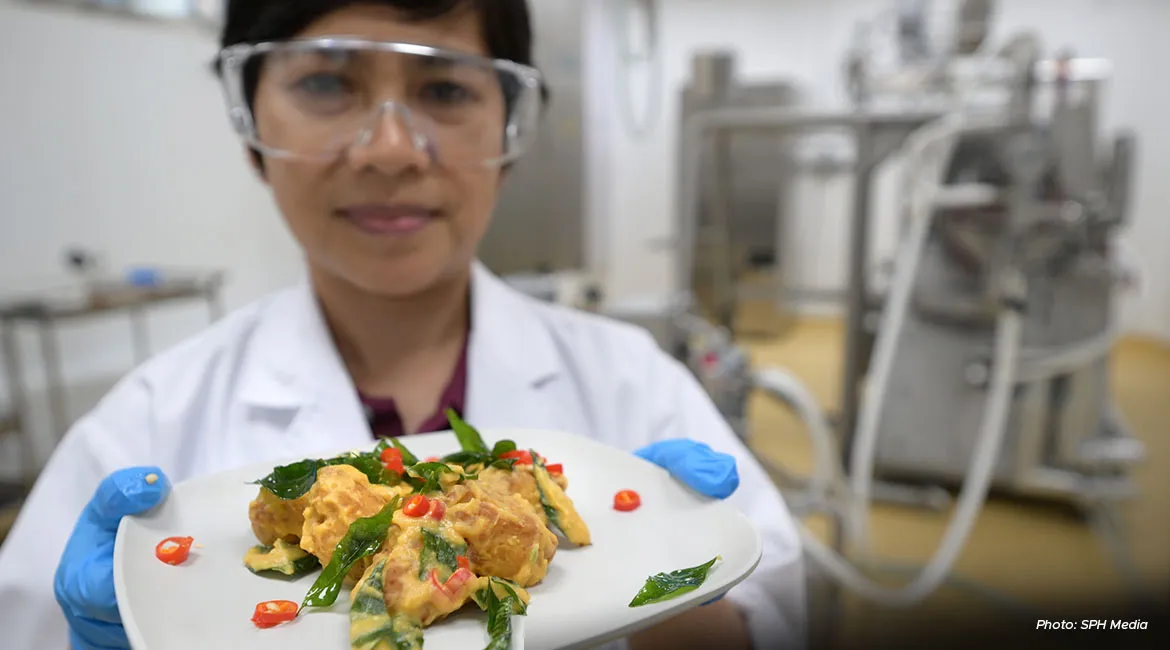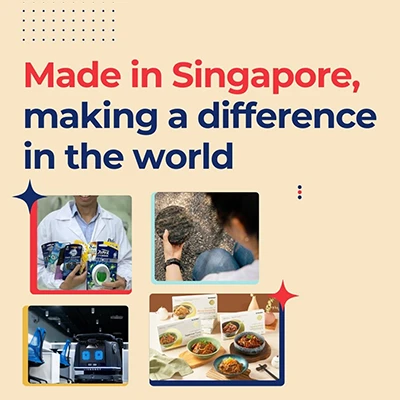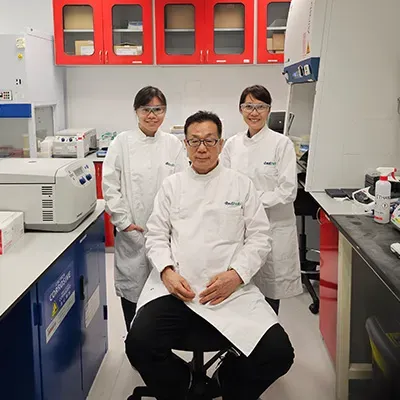Swiss-Dutch nutrition, health and beauty company dsm-firmenich unveiled two new innovation and smart production facilities on 18 September, one focusing on plant-based food innovation and the other on perfume production.
Hoping to leverage Singapore’s position as a multicultural melting pot of flavours, FutureBites is dsm-firmenich’s first dedicated facility and regional hub for research and development into plant-based food. It will improve speed to market and develop customised food solutions to cater to different cuisine and taste preferences in Asia. It will also work with clients to test and validate food products for the market.
The pilot-scale facility in Tuas will also allow experts from different fields and countries in Asia to collaborate and ensure that the company’s products remain relevant to the Asian market.
One of its products is salted egg CulinaPlant Chunks, which are textured plant-protein chunks.
FutureBites also has a plant-based smoothie called Protopia Eco Boost. dsm-firmenich’s products include dietary supplements, vitamins and perfumes.
“Singapore was chosen as the location for the first FutureBites studio as it’s a very multicultural country,” said Mr Timothy Elisafan, vice-president in Asia-Pacifc for the taste texture and health division at dsm-firmenich.
“Food and flavours are very regional — they vary across countries. Because Singapore is so multicultural, we are able to get people from different cultures and countries that can help us validate the accuracy of our food’s taste and appearance,” said Mr Elisafan.
He added: “It’s also easier to attract experts into Singapore as compared with other markets – the talent pool here is also richer as compared with other countries.”
Health is now a big trend in food in Asia and the world, said Mr Elisafan.
“After the COVID-19 pandemic, people now also want to have more indulgent food, like snacks, ice cream, chocolate. So food products are now focusing more on combining health and indulgence,” he said.
“When people see a claim on a food product that it has less sugar or salt, people assume it won’t taste good — we aim to make sure that healthy food still tastes good, so people can eat indulgent food without guilt.”







